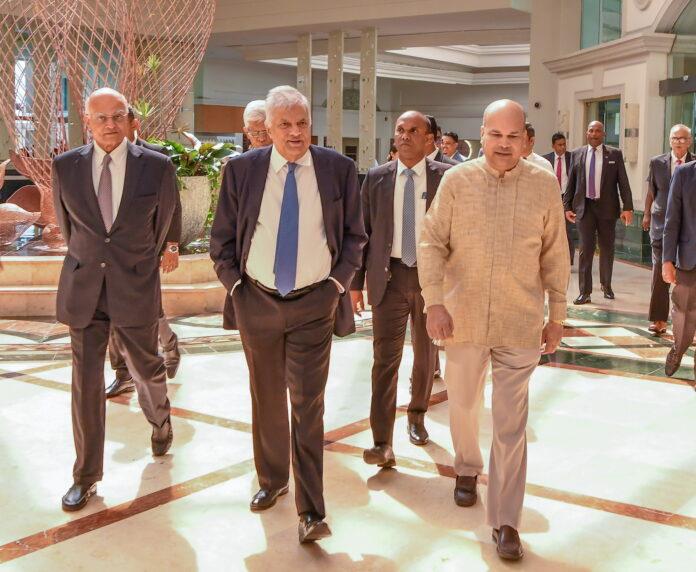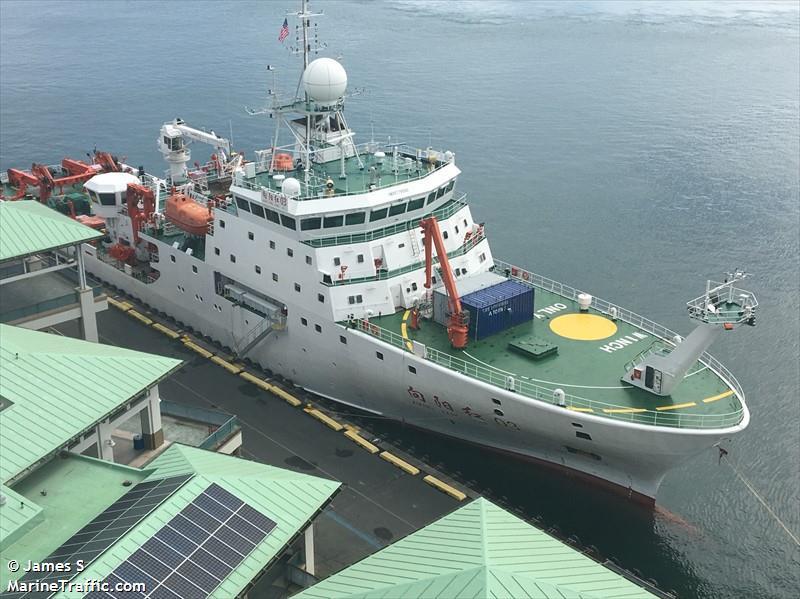
Challenges Posed By Changes In The Indian Ocean Region
Colombo, March 4: The challenges posed by changes in the Indian Ocean Region (IOR) were discussed at an international conference on Indian Ocean Security held in Colombo last week under the auspices of the Pathfinder Foundation.
That there was no one view on the issues involved came out clearly in the speeches and comments made at the two-day conference.
ADVERTISEMENTWhile US, India and China are trying hard to co-opt the non-powers (like Sri Lanka for example) in order to strengthen themselves vis-à-vis their challengers in the IOR, the non-powers are trying out various strategies to resist these pressures in order to safeguard their hard-won sovereignty and to exercise strategic autonomy which has become the goal of many emerging nations in the post-colonial context.
The geographical location of Sri Lanka in the middle of the Indian Ocean and on the main East-West international sea route is both a boon and bane as Admiral (Rtd). Jayanath Colombage put it. On the one hand, Sri Lanka is attractive and important for the world's economic and political powers, which is a boon. But on the other, powers covet it and want to bring it under their control using a mix of the carrot and the stick. This is seen as an ever present threat by the non-powers. And they device various strategies to counter it.
One of the strategies to buy peace is to cultivate all powers simultaneously under the rubric of being“friends with all, enemy of none”. But this is not acceptable to the big powers, who desire monopolistic access and control. Therefore, the policy of being“friends with all and enemy of none” has not worked. The struggle to exercise strategic autonomy continues and will continue so long as the non-powers remain economically weak and dependent on foreign assistance even for their basic needs.
Some have suggested that the non-powers parcel out their national assets to competing powers. This has been tried out to some extent, but it has run up against strong opposition from nationalists.
The non-powers have also considered accepting security guarantees from one power and economic aid from a competing power.
depending on the comparative advantage. But this dichotomy is not appreciated by the big powers as they like to play the zero sum game. And at any rate the line between economic influence and politico-geopolitical influence is thin and can be crossed easily.

President Wickremesinghe arrives at the Indian Ocean conference venue
In his keynote address at the Pathfinder Foundation conference, Sri Lankan President Ranil Wickremesinghe traced the historical growth of the situation in the IOR which gave an idea of the challenges and also opportunities for the non-powers in the region. Notable changes in the IOR took place after the British left India in 1947, Wickremesinghe recalled.
With Japan vanquished and China still in the throes of a civil war, India took the lead in drawing up a scheme for Asia of the future. In fact, even before India became independent, Jawaharlal Nehru organized an Asian Relations Conference (ARC) in New Delhi to discuss issues arising from decolonization. Among the topics discussed at the ARC were: National movements for freedom; Racial Problems; Inter-Asian Migration; Transition from Colonial to National Economy; Agricultural Reconstruction and Industrial Development; and Status of Women and Women's Movement. Significantly,“Defence and Security questions” were not discussed as these had no relevance then.
Next, India, Ceylon, Pakistan, Burma and Indonesia got together in Colombo for the Colombo conference in 1954, Wickremesunghe said. The Colombo conference discussed the hot topics of the day and tried to evolve a consensus. The Indo-China question, colonialism and Communism were discussed, but consensus eluded the participants.
Despite that, egged on by Indonesia, a large number of Asian countries including Communist China, met at Bandung in Indonesia in 1955. This was the next landmark, President Wickremesinghe said. The then Ceylonese Prime Minister Sir John Kotelawala played a pivotal role in it, he pointed out.
The issues at the Bandung conference were broader. Among the subjects discussed were: Human Rights, the UN charter, respect for the sovereignty and territorial integrity of all nations; recognition of the equality of all nations large and small; and abstention from intervention or interference in the internal affairs of another country.
The seeds of the Non-Aligned Movement (NAM) were sowed at Bandung. This could be seen in Nehru's assertion that the Bandung conference was not“opposed in any way to America or the Soviet Union or any other power or group of powers.” NAM came into being in Belgrade, Yugoslavia, in 1961. The canvas was expanded to cover the entire Afro-Asian region.
With the support of NAM, Ceylonese Prime Minister Sirimavo Bandaranaike got the UN General Assembly to pass a resolution on 16 December 1971 declaring the Indian Ocean, together with the air space above it and the ocean floor, a“Zone of Peace for all time.”
Though the resolution has been a dead letter, Mrs should be credited for warning against the militarization of the IOR which is gathering steam with every passing day.
President Wickremesinghe also outlined the more contemporary events which have a bearing on security in IOR. In the last five years, the world has seen the inexorable rise of China as an economic and naval power; the resurrection of the China-Taiwan-US conflict; and the debt crisis.
West Asia has emerged as a factor with the rise of Saudi Arabia, Dubai and Iran as independent players. New alliances are being struck with Iran and Saudi Arabia due to China's mediation. Even as China became a factor in West Asia, India entered the fray in that region with connectivity schemes involving Iran.
New groupings like BRICS have come up breaking old barriers. But at the same time new problems are coming up in the region, such as a resurgent Somalian piracy and Houthi attacks on shipping in the Red Sea, Wickremesinghe said.
The Bay of Bengal, which was lake till recently, is also set to be an area of contention with China seeking a route to reach it from its mainland through Myanmar.
In his opening remarks, the former National Security Advisor of India, Shivshankar Menon, said that States in the Indian Ocean region are victims of geopolitical rivalry, made worse by the rise of authoritarian leaders who make compromises harder to arrive at.
Menon also noted that the world does not have a settled order. What we have is an uncertain space between orders, he said. But this has given scope for countries to balance opportunities. A notable feature of the situation is that the UN has become ineffective. Global powers will have to work with other powers and take their interests into account to bring order to a disorderly world.
The US Ambassador Julie Chung, said that Sri Lanka occupies a critical place in the Indo-Pacific and should play a leadership role in ensuring that global supply chains are not disrupted. That is why the US has given US$ 533 million to support the development of a deep-water container terminal in the Port of Colombo that will provide critical infrastructure for the South Asian region.
To see that Sri Lanka maintains its sovereignty (against Chinese influence presumably) the US has donated three Coast Guard Cutters and a fourth is on the way, Chung said.
However, she spoke approvingly of Sri Lanka's wish to join the China-led Regional Comprehensive Economic Partnership (RCEP).
Dr Zongyi, Senior Fellow and Director, Centre for South Asia Studies, China, denounced the concept of the Indo-Pacific as a“destructive” concept which is mainly aimed at stemming China's growth and spoiling its relations with other countries.
He faulted India for joining QUAD, an association with the goal of opposing China in the Indo-Pacific region. But he advised countries in India's neighbourhood to have good relations with India while cultivating good relations with China. He cited the case of Prime Minister Sheikh Hasina of Bangladesh who has been maintaining good relations with both India and China.
Ambassador Bernard Goonetilleke, Chairman of the Pathfinder Foundation, Si Lanka, in his introductory remarks, talked on Maritime Domain Awareness, the need to develop capabilities to safeguard the Exclusive Economic Zones and the importance of finding out what lies in the seabed as these have security implications.
Most of the comments from the audience were supportive of the idea of Sri Lanka being nonaligned and maintaining a neutral stance in conflicts between rival powers.
Sri Lankan President Wickremesinghe posed the question“Are we to become the battle ground of competing interests?” and went on to stress the importance of maintaining an inclusive approach that respects the historical significance of the Indian Ocean and considers the perspectives of its diverse stakeholders for long-term peace and prosperity.
He emphasized Sri Lanka's dedication to maintaining a strategic position aimed at ensuring the absence of major power rivalries and upholding the freedom of navigation in the Indian Ocean.
END

Legal Disclaimer:
MENAFN provides the information “as is” without warranty of any kind. We do not accept any responsibility or liability for the accuracy, content, images, videos, licenses, completeness, legality, or reliability of the information contained in this article. If you have any complaints or copyright issues related to this article, kindly contact the provider above.






















Comments
No comment